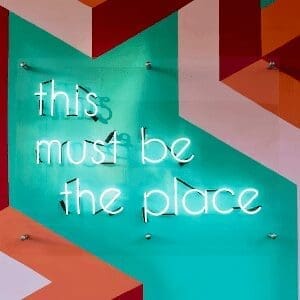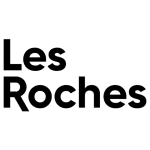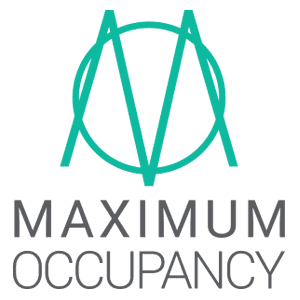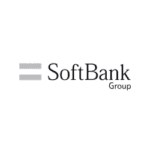 You may have heard the term “experience economy” before, but what does it actually mean?
You may have heard the term “experience economy” before, but what does it actually mean?
In the late 1990s, economist Joseph Pine II popularised the term “the experience economy.”
In his book of the same name, he argued that businesses should focus on creating unique experiences for their customers in order to differentiate themselves from their competitors.
He observed that people were no longer content with simply buying products; they wanted to buy an experience.
In today’s economy, this is more true than ever before.
Consumers are looking for companies that can provide them with an enjoyable and memorable experience.
If you want your business to thrive in today’s competitive market, you need to focus on providing an excellent customer experience.
Why is the experience economy important?
In a world where people are increasingly bombarded with choices, businesses need to find ways to stand out from the crowd.
The experience economy is one way to do just that. By creating unique and memorable experiences, businesses can tap into the emotional needs of their customers.
People crave connection and meaning. So, businesses that can provide these kinds of experiences will be well-positioned for success.
The Experience economy is not just about attracting new customers, it’s also about keeping the ones you already have.
In today’s competitive market, businesses need to find ways to keep their existing customers engaged and coming back for more.
The experience economy provides a perfect opportunity to do just that.
What is an example of the experience economy?
One great example of this trend is the rise of pop-ups and temporary events.
These businesses are designed to create a one-of-a-kind experience that cannot be replicated at home or through online shopping.
Pop-up shops are often associated with cultural events such as music festivals or art exhibitions.
They are also becoming increasingly popular among retailers who want to create a more immersive and personal shopping experience for their customers.
Pop-up food stalls are another great example. These businesses are often associated with festivals and fairs, but they are also popping up in cities all over the world.
By offering a unique and temporary dining experience inspired by foods from all over the world, these businesses are able to stand out from the competition and attract new customers.
As for temporary events, businesses are increasingly using them as a way to create buzz and generate word-of-mouth marketing.
For example, many brands will throw a launch party for a new product or store opening.
These parties are designed to get people talking about the brand and create an experience that people will remember long after the event is over.
Experience economy 2022 trends
There are a few key 2022 trends that are likely to shape the experience economy in the years ahead:
- Digitization of in-person experiences: From easy QR code ordering at your table to virtually attending events from around the world, there are many ways businesses can use technology to enhance customer experiences.
- Rise of at-home experiences: Businesses are meeting this demand by offering subscription boxes, home delivery services, and online experiences.
- Growth of local experiences: In a globalized world, there is a growing appreciation for local experiences that cannot be found anywhere else. This trend is being fuelled by a desire for authenticity and a need to support local businesses.
- Rise of immersive experiences: As technology advances, so too does our ability to create immersive experiences that transport people to another place and time. Businesses are using things like virtual reality, augmented reality, and mixed reality to create unforgettable experiences for their customers.
How big is the experience economy
The experience economy has exploded in recent years and shows no signs of slowing down.
In fact, the experience economy is expected to be worth $12 billion by 2023.
The value of experiences has taken precedence, with 78% of millennials choosing to spend money on an experience over products.
The growth of the experience economy is being driven by a number of factors, including the increased accessibility of experiences, the rise of social media, and technological development.
So, the experience economy is already considerable, and as it’s gathering momentum, the future looks bright too.
As more and more businesses focus on creating unique and memorable experiences, we can expect to see even more innovation in this space to sustain more growth and excitement.
You can stay ahead of the curve and learn about creating amazing hospitality experiences by doing a hospitality degree program at Les Roches.
Simply take a look at our hotel management degree and how it can help you achieve your career goals.
What is the experience industry?
The experience industry can be defined as the businesses and services that focus on creating memorable experiences for their customers.
This can include everything from restaurants and hotels to museums and theme parks.
Businesses in the experience industry go to great lengths to create unique and enjoyable experiences that will keep customers coming back for more.
In many cases, the experience itself actually comes from the product being sold.
For example, people will pay to go on a hot air balloon ride or visit a winery not just for the end result, but for the entire journey.
With the rise of social media, the experience industry has only become more important, as customers are now able to share their experiences with a wider audience.
As a result, businesses in this industry must continually strive to create new and innovative ways to wow their customers.
What is experience economy in tourism?
The experience economy is a term that is used to describe the tourism industry’s focus on offering unique and memorable experiences to tourists.
This shift began as tourism destinations realized that they needed to offer more than just sun, sand, and sea to attract visitors.
Today, the experience economy is a major driver of the tourism industry, with destinations around the world competing to offer the most unique and exciting experiences.
From zip-lining through rainforests to immersive tours and swimming with dolphins, there is no shortage of options for travelers looking for an unforgettable vacation.
As the experience economy continues to grow, so too will the options for travelers looking to explore the world.
What is an experience business?
A business of experience can be defined as a company that specializes in creating and delivering experiences for its customers.
By their very nature, experience businesses are customer-centric, always looking for new and innovative ways to wow their guests.
This can be done in a number of ways, but some common strategies include offering unique and personalized experiences, creating an emotional connection with customers, providing exceptional customer service, or providing a unique setting or environment.
As customers become more and more demanding, businesses must find ways to stand out from the crowd and deliver an unforgettable experience.
What is the digital experience economy?
The digital experience economy is a term that refers to the growing trend of businesses using digital technologies to create unique and personalized experiences for their customers.
This can include everything from using customer data to personalize the shopping experience, to creating immersive online experiences that go beyond simply selling products.
With the rise of social media and mobile devices, businesses have more opportunities than ever before to connect with their customers and create lasting relationships.
In the digital age, companies that fail to create unique and memorable experiences for their customers will be left behind.
































